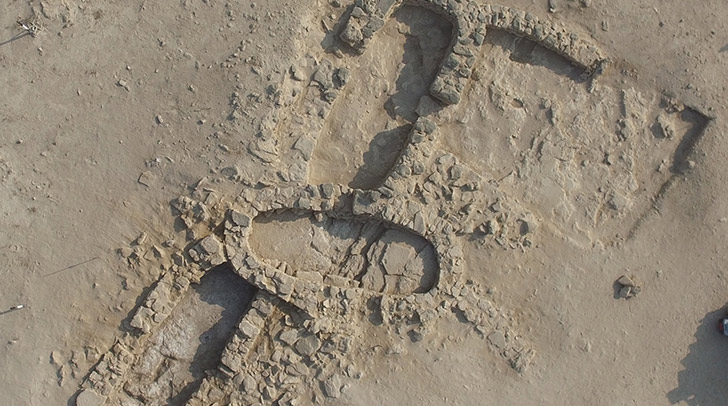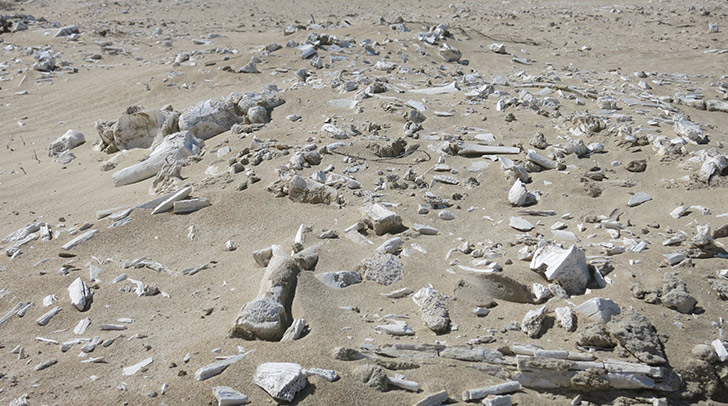Remarkable discoveries by archaeologists from Abu Dhabi Tourism & Culture Authority (TCA Abu Dhabi) at ancient sites on the island of Marawah and Baynunah have revealed new information on Abu Dhabi’s earliest inhabitants, evidencing a rich history stretching back over 7,000 years.
Artefacts excavated from a village on the island of Marawah and Baynunah indicate that during this time a sophisticated and highly skilled population were able to trade and thrive in challenging conditions and adapt to the changing environment around them.
Commenting on the latest discoveries, HE Mohamed Khalifa Al Mubarak, Chairman, TCA Abu Dhabi said, “These important discoveries signify Abu Dhabi’s advanced construction methods from the Neolithic and the influential role it had in early long-distance maritime trade. The expertise of our team of archaeologists allows us to build a narrative of the Emirate’s development and history, piecing together an intriguing and intricate story of the earliest known inhabitants of the Emirate of Abu Dhabi. We are encouraged to assign more excavation works, and our aim is to conduct extensive studies to further understand our ancestors and our land, and our mission is to share these findings with the world”.
Marawah Island

Excavations have revealed one of the earliest stone-built villages in the Arabian Gulf. TCA Abu Dhabi Coastal Heritage archaeologist Abdulla Khalfan Al Kaabi said, “Radiocarbon dating of the deposits show that the village dates back more than 7,500 years to the Neolithic period. This style of architecture is unique for this period and has never been found before in the region.”
Baynunah

The desert surface of this site is littered with white fragments of ancient wild camel bones. These are the remains of wild camels that were hunted and killed 6,500 years ago. Research has shown that people lured the animals into the soft, wet ground at Baynunah, where these camels would lose their footing, and eventually become trapped. Baynunah has provided the earliest evidence from anywhere in the Middle East for the mass killing of wild camels.